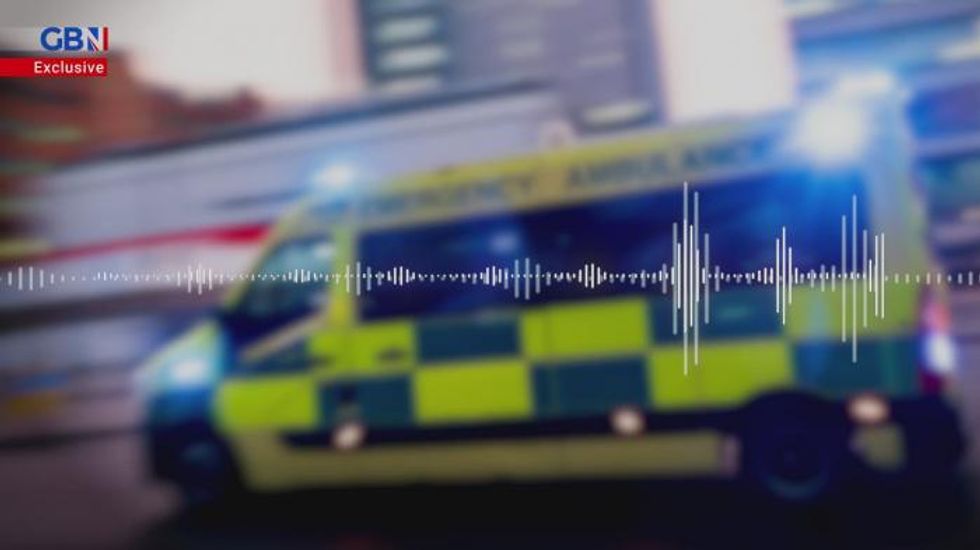Don't Miss
Most Read
Trending on GB News
An emergency responder in the East of England Ambulance Service, claims that some patients are dying before they can be reached due to delays of up to nine hours when emergency departments are full.
In an exclusive interview with GB News, the staff member whose identity is being protected, says pressure on the NHS is leaving "at times 20-25 ambulances waiting outside just one hospital".
GB News has also been informed that delays are leaving ambulance crews "trapped" inside with Covid patients.
"Staff are leaving every day because they can't cope being in the back of an ambulance for nine hours with a Covid positive patient".
According to the emergency worker, crews are waiting 4-9 hours when attempting to offload patients at hospitals, with critically ill patients being forced to wait outside for emergency beds.
National guidelines say patients should be transferred from an ambulance to an emergency department within 15 minutes.
GB News has been told staff are at times having to "perform CPR in the back of an ambulance right outside emergency departments" because there's no room in resuscitation facilities for them.
"The NHS has broken down"
The emergency responder says ambulances are being diverted to other hospitals "daily" due to a lack of room inside emergency departments.
It's led them to claims that "patients are dying before we reach them" because "their nearest ambulance is travelling such a distance". GB News cannot independently verify this allegation.
The well-placed source said one patient with chest pain waited two and a half hours for an ambulance, before they stopped breathing.
"If we'd have got there within the time we were supposed to be, we might have been able to get them to hospital and might have been able to save their life".
It's come after the armed forces stepped in to fill a staffing crisis in the NHS caused by the rapid spread of the variant.
Recent data from NHS England shows 39,142 NHS staff at hospital trusts in England were absent for Covid-19 reasons on January 2, up 59% on the previous week (24,632) and more than three times the number at the start of December (12,508).
In total, around 9,300 members of the armed forces are understood to be on standby.
Regular diversions to alternative hospitals are leaving paramedics "forced to make the decision of risking a patient becoming critical because of the divert".
In the Midlands, Northamptonshire leaders declared a system-wide major incident on Friday due to Covid-19.
Northamptonshire Local Resilience Forum, which is made up of NHS organisations, local authorities, Northamptonshire Fire and Rescue Service and Northamptonshire Police, issued the alert due to “rising demand on services and staffing levels”.
GB News has also been told that, at times, paramedics are manning hospital shifts in so-called "cohorting bays", looking after 2-3 patients due to staffing pressures.
A government spokesperson said:
“We are incredibly grateful for the dedication and tireless work of NHS staff.
“We’re increasing NHS capacity by building onsite Nightingale hubs, as well as creating 2,500 virtual beds where people can be safely treated at home. NHS England and Improvement has given ambulance Trusts an extra £55 million to boost staff numbers in control rooms and on the frontline.
“This is alongside the work we’re doing to recruit more staff, improve retention and invest in training - working closely with NHS England and putting in at least £500 million to support the care workforce as part of the £5.4 billion to reform social care.”










